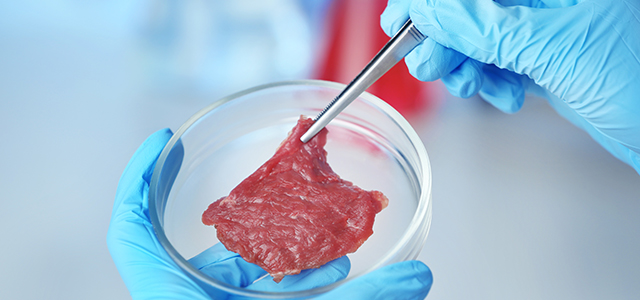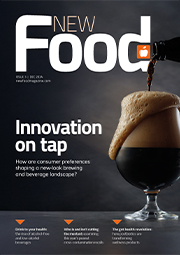Can we perform gelatin speciation and adulteration using bioinformatics, proteomics and high resolution mass spectrometry?
- Like
- Digg
- Del
- Tumblr
- VKontakte
- Buffer
- Love This
- Odnoklassniki
- Meneame
- Blogger
- Amazon
- Yahoo Mail
- Gmail
- AOL
- Newsvine
- HackerNews
- Evernote
- MySpace
- Mail.ru
- Viadeo
- Line
- Comments
- Yummly
- SMS
- Viber
- Telegram
- Subscribe
- Skype
- Facebook Messenger
- Kakao
- LiveJournal
- Yammer
- Edgar
- Fintel
- Mix
- Instapaper
- Copy Link


About this webinar
Gelatine is composed of highly processed proteins, which is widely used as a gelling and thickening agent in a variety of food products, including meat, confectionery products and water-based desserts. It is also widely used in the pharmaceutical industry. Gelatine is obtained by hydrolysis of collagen, which is extracted from materials such as bone, hide and skin from animal slaughterhouses. Nearly 80% of gelatine are produced from pig by-products. However, vegetarian, Halal and Kosher gelatine, are normally prepared from seaweed, fish or bovine skin or bones.
The webinar will present a strategy to detect specific peptide biomarkers in the digested gelatin and food samples using HPLC–QqOrbitrap. We will also demonstrate that this method can be an effective strategy to detect gelatine adulteration.
Keynote speakers


University of Montreal
Dr Francis Beaudry is an Associate Professor at the veterinary biomedicine department of the Faculty of veterinary medicine of the Université de Montréal. He is an adjunct researcher at the Université de Montréal Hospital Research Centre (CRCHUM). Additionally, he has held leadership positions in bioanalysis within pharmaceutical companies prior his tenure at Université de Montréal. Combined, Dr Beaudry has 24 years of experience in mass spectrometry and bioanalysis. Dr Beaudry research is funded by the Natural Sciences and Engineering Research Council of Canada (NSERC).
Dr Beaudry received his bachelor’s degree (chemistry) from Sherbrooke University (Sherbrooke, Canada) and his doctorate (medicinal and analytical chemistry) from the Anglia Ruskin University (Cambridge, UK). He has completed 2-year research assignment in proteomics/peptidomics at Univeristé de Montréal prior his appointment as associate professor in June 2009. Since June 2009, he has supervised or co-supervised 19 MSc and PhD students and he is the author or co-author of 93 peer reviewed manuscripts and 90 research abstracts. He has received in February 2017 The Faculty of veterinary medicine of the Université de Montréal / Zoetis award for excellence in research.
Supported by:
![]()
![]()
Thermo Fisher Scientific has advanced instrumentation that can help in the area of food adulteration to determine the known and unknown contaminants of the food and beverage product. Their state of the art products help labs check for the adulteration of edible oils to fruit juices and many other products. Their instruments help government agencies and contract laboratories determine if a particular product has been adulterated.
More in this webinar series…
Use of stable isotope analysis in commercial food authenticity testing
Date: 29 March 2017 | Time: 15.00 BST
Speaker: Dr. David Psomiadis, Laboratory Manager, Imprint Analytics GmbH
Charged aerosol detection for LC analysis of triglycerides: A novel tool for extra-virgin olive oil characterisation
Date: 9 May 2017 | Time: 15.00 BST
Speaker: Professor Lanfranco Conte, Dept. of Agri-Food, Environmental and Animal Sciences, University of Udine
When honey is not all honey and other tales of food adulteration: Ion chromatography as a tool for detecting food fraud
Date: 7 June 2017 | Time: 15.00 BST
Speaker: Dr. Jeff Rohrer, Thermo Fisher Scientific
Chemical profiling and differential analysis of whiskies using Q Exactive™ GC Orbitrap™ GC-MS/MS
Date: 11 July 2017 | Time: 15.00 BST
Speaker: Dominic Roberts, Thermo Fisher Scientific
The rest of this content is restricted - login or subscribe free to access


Why subscribe? Join our growing community of thousands of industry professionals and gain access to:
- bi-monthly issues in print and/or digital format
- case studies, whitepapers, webinars and industry-leading content
- breaking news and features
- our extensive online archive of thousands of articles and years of past issues
- ...And it's all free!
Click here to Subscribe today Login here









